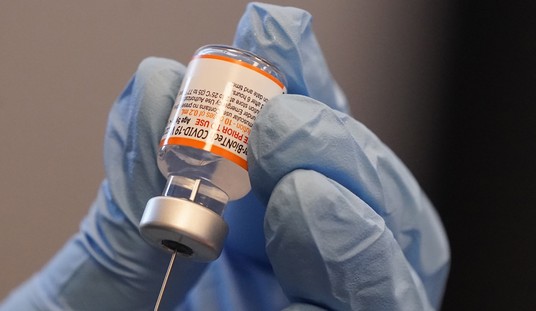The mystery of Havana Syndrome which has afflicted American diplomats and their families since 2018 may have finally been solved.
Or not.
I've been following this story since its inception, and the intelligence community has been all over the map in trying to explain the condition. They have also been out front stonewalling and withholding evidence from Congress about their findings.
At first, the intelligence agencies determined it was a foreign actor who might have been using microwaves or a "directed energy" weapon to make our diplomats sick. Then came the theory that it was some kind of acoustic weapon being used. By this time, diplomats in Russia, Vienna, and Germany in addition to Cuba had been afflicted with the condition.
In 2023, another theory gained traction: "mass psychogenic illness."
Once called mass hysteria, mass psychogenic illnesses are now also called functional illnesses because they trouble the conventional medical dichotomy between the brain and the mind. “I wince when I hear the word ‘psychogenic,’” Jon Stone, a neurologist at the University of Edinburgh in Scotland, told Hurley. “It creates a false impression about what these disorders are. They’re like depression or migraine. They happen in that gray area where the mind and the brain intersect.”
Months after the first JAMA paper was published, Stone co-wrote a letter to the editor critiquing its dismissal of functional illness as a potential explanation. “In many functional neurological disorders, initial sensory discomfort together with anxiety and heightened attention trigger maladaptive processes that lead to persistent symptoms,” the letter stated. “Although diagnostic caution is warranted, functional neurological disorders are common genuine disorders that can affect anyone, including hardworking diplomatic staff.”
Some of the early work on this theory was done by Robert Baloh and Robert Bartholomew, who wrote a book called "Havana Syndrome: Mass Psychogenic Illness and the Real Story Behind the Embassy Mystery and Hysteria."
The two researchers believe that a general feeling of unease was set off when the U.S. government made Havana Syndrome a major problem.
They believe that once the illnesses became widely known throughout the government, it set off a feeling of general unease so that any symptoms of any kind for any reason suddenly took on a heightened psychological significance. In short, people talked themselves into feeling bad while others enabled the feelings. Baloh points out that there are dozens of instances of this kind of mass psychogenic illness throughout history.
Apparently, the House Permanent Select Committee on Intelligence, which released an unclassified interim report on its investigation, believes that the "foreign actor" theory is the most likely explanation. A "60 Minutes" report from April also concludes that Havana Syndrome was probably a Russian psyop.
The CIA concluded in early 2022 that the condition was not caused by a "hostile foreign power." But the agency has worked tirelessly to deny Congress relevant information. This has bred suspicion regarding any conclusion the intelligence community reaches.
"Sadly, the [intelligence community] has actively attempted to impede our investigation, but we have nonetheless been able to gather significant evidence, and I have reason to believe that its claims of environmental or social factors explaining AHIs [anomalous health incidents] are false," said Rep. Rick Crawford (R-Ark.), who led the investigation as the chairman of the Subcommittee on the Central Intelligence Agency.
The name of the report says a lot: “Investigating the Intelligence Community’s Conclusions on Anomalous Health Incidents: Is the Intelligence Community Hiding the Real Reason for This Phenomenon?”
Or are they simply flailing about like the rest of the government looking for a reason that more than 300 diplomats, soldiers, wives, and children of U.S. government employees are all suffering from the effects of this condition? The fact that there's no smoking gun that definitively points to a villain after three years of investigations by medical, national security, and scientific bodies is worrisome.
Something else is at work.
The congressional report highlights a growing trust deficit between the intelligence community workforce and its leadership. Reports of whistleblowers alleging that the prior conclusions about AHIs were shaped to fit politically palatable narratives suggest a troubling trend: prioritizing institutional reputation over transparency and accountability. Trust is the bedrock of any effective organization, and erosion of trust within the community could have cascading effects on morale, personnel retention, recruitment of talent and mission capability.
The early investigation by the National Science Foundation found no evidence of a directed energy weapon. They also found no evidence of brain damage in those who were afflicted.
The fact is, the Intelligence Committee interim report brings us no closer to the truth than we were before. And unless there’s some intelligence breakthrough, we’re not likely to find out for sure what was sickening our diplomats.










